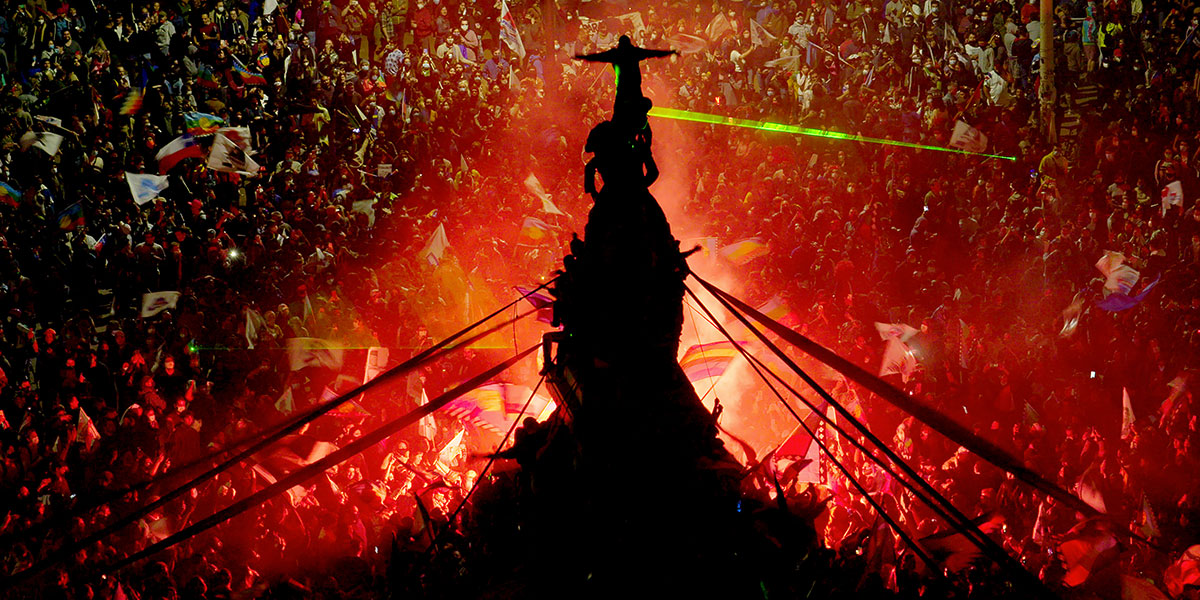|
Review by Sean Boelman
The thing about documentaries is that they don’t have to be the most polished to feel powerful. This is the case with acclaimed filmmaker Patricio Guzmán’s newest film, My Imaginary Country, which has sometimes questionable execution but such a connection with its story that it cannot be ignored.
In the movie, Guzmán explores the recent social turmoil that has been happening in Chile, culminating in the protests in the streets of Santiago in 2019 in the search for more democracy and social equality. It’s a story that is undeniably important, but few people have heard about it outside of those interested in Latin American politics. Guzmán has made several films about the political situation in Chile over the years, including his most famous work, The Battle of Chile. He is obviously very passionate about the situation in his country, and he has a canny eye for how to tell these stories in a way that makes them understandable for foreign audiences. One of the more interesting portions of the movie asks the question of what politics really is. It’s an interesting question that many simply don’t consider, but sparks an interesting debate about the ethics of decision-making in the government. It’s one of the most effective ways I’ve seen to appeal to the emotions of an audience that may otherwise be unmoved.
Indeed, like the rest of Guzmán’s films, My Imaginary Country is extremely unabashed from a political standpoint. Guzmán takes a strong stance on the political situation in Chile right now and is not afraid of being incendiary. We need more filmmakers who are willing to take risks like this and be unabashed with their politics.
Guzmán interviews a variety of people in the movie, from political activists to artists. These people offer a variety of perspectives on the conflict, some informed, others less informed, but all passionate about the cause. In some of the interviews, the viewer may be wondering what these people add to the conversation, and Guzmán does not always offer a satisfying answer. The execution of the film from a technical level is very inconsistent. The portions of the movie that are shot in a fly on the wall format are exceptional, having the right amount of grittiness and making the viewer feel like they are immersed on the ground. But on the other head, the talking heads are shot in an exceedingly simple way. Although the execution of My Imaginary Country often leaves something to be desired, the political turmoil it explores is so underrepresented in the media that it’s an important film to see. This movie will certainly spark a conversation about our understanding of democracy, which is exactly what Guzmán seems to want to do. My Imaginary Country screened at the 2022 Toronto International Film Festival, which ran September 8-18. Rating: 4/5
0 Comments
Leave a Reply. |
Archives
July 2024
Authors
All
|
|
|
disappointment media
Dedicated to unique and diverse perspectives on cinema! |


